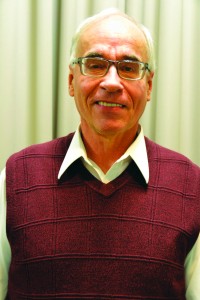Starting Fall 2014 incoming freshman will be required to participate in First Year Experience and enroll in UN 100 Freshman Seminar as part of a major specific block.

According to First Year Experience office, the program is designed to help students develop strategies and attitudes to maximize academic success; to familiarize students with campus resources and how to use them; and to assist students in developing positive relationships with faculty, staff, student leaders and peers.
Bill Richards, coordinator of First Year Programs said FYE is a great experience for incoming students.
“I think a larger percentage of incoming students will make meaningful connections with their academic departments, peers and campus resource providers,” Richards said. “These are the types of connections that positively influence student satisfaction and persistence.”
Larry Pagel, chairman of Academic Senate said FYE is about networking early during a student’s college career.
“I think part of the purpose of this new program is that students who are in certain majors will learn, meet and work with others in the same major more quickly in courses that they take together within that block,” Pagel said. “They are able to support each other.”
Richards said all academic departments are required to create individual blocks for their major.
“For Fall 2014, I consulted with all academic department heads to determine their preferences for how FYE blocks would accommodate their academic major(s),” Richards said. “The courses present in Fall 2014 FYE blocks were selected as a result of those consultations. In essence, every academic department had input into the creation of the blocks that relate to their area(s). For Fall 2014, we’ve tripled the amount of blocks for undeclared students (from 5 to 15). These blocks all contain a UN 100 course, and at least one liberal studies course. Undeclared students will be able to ‘customize’ their blocks by registering for additional courses during orientation.”
“Different offices on campus had done some research about whether students have a higher GPA after their first semester,” Pagel said. “The recommendation was based on the research that showed that those students who had completed UN 100 had a higher overall GPA and were more likely to continue on with their education than students that did not take UN 100.”
Richard expects a positive outcome from the program.
“I anticipate that the positive correlation between FYE participation and first-second student retention will continue,” Richards said. “I believe that third (and subsequent) semester retention will also be positively impacted by the larger percentage of FYE participants.”
For more information about FYE visit www.nmu.edu/firstyearprograms/ or email fye@nmu.edu.
























